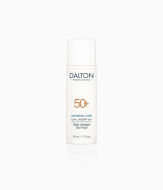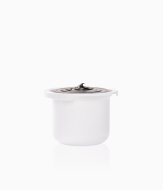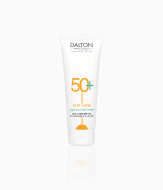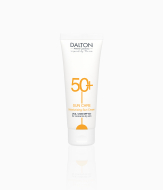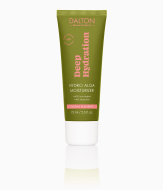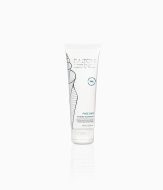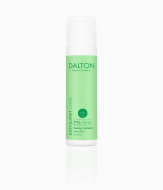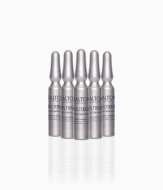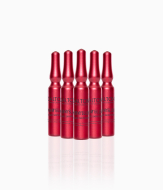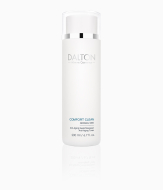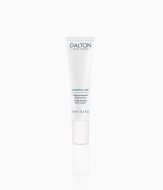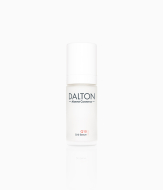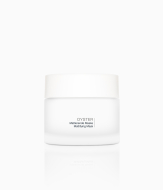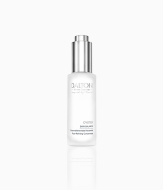
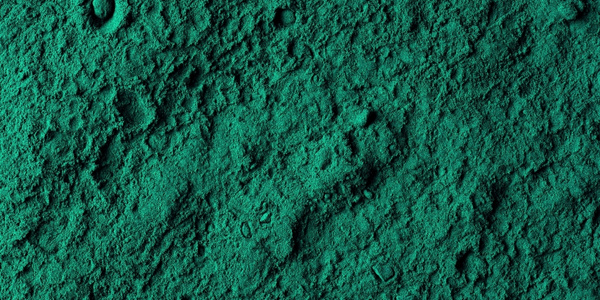
15 September 2025
Spirulina
Looking for an ingredient that does it all? Spirulina is as versatile as it gets – offering powerful benefits for both healthy skin and a balanced diet.
This is what we will be exploring in this article: :
This is what we will be exploring in this article:
• What is spirulina and where does it come from?
3 Key Facts About Spirulina
Did you know? Here are three surprising facts about spirulina:
- Spirulina is one of the oldest life forms on Earth, dating back more than 3.5 billion years. It belongs to the cyanobacteria family – the first organisms capable of producing oxygen through photosynthesis, helping to shape the Earth’s atmosphere as we know it.
- Spirulina contains up to 10 times more iron than spinach and offers excellent bioavailability. Iron plays a key role in transporting oxygen through the blood and supporting cell division, making it an essential nutrient for healthy skin.
- Spirulina is considered a true superfood for astronauts. Thanks to its high nutrient density, compact form and health benefits, it’s been a staple in NASA and ESA space nutrition plans for decades.




What is spirulina and where does it come from?
Though often referred to as "blue-green algae", spirulina is actually a type of cyanobacterium – a photosynthetic microorganism. Spirulina is easily recognized by its spiral-shaped filaments and its deep green to blue-green color. The two most common species are Spirulina platensis and Spirulina maxima. In the wild, spirulina thrives in alkaline, mineral-rich lakes in tropical and subtropical regions. These days, it is mostly cultivated sustainably in controlled aquaculture systems.
Are cyanobacteria considered algae?
No - although spirulina is often mistakenly called blue-green algae, it is technically classified as a cyanobacterium. Like algae, cyanobacteria perform photosynthesis and produce oxygen, but biologically they are quite different. For one, cyanobacteria have no nucleus, which places them in the prokaryote category. They also differ in their pigments and cellular structure.
Spirulina in Skincare
There’s a reason we rely on marine ingredients in our formulas – and spirulina is no exception. This powerhouse ingredient is just as impressive as all the other sea-derived actives. Here are the top skin benefits spirulina is known for:
✔ Antioxidant
✔ Anti-inflammatory
✔ Hydrating
✔ Detoxifying
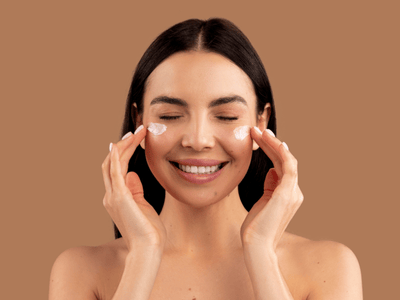



These are the active components in spirulina that benefit your skin:
Phycocyanin
Chlorophyll
High-quality amino acids
Vitamins B1, B2, B3 & E
Minerals
Essential fatty acids
The best ingredient pairings with spirulina
Which ingredients pair best with spirulina? In fact, spirulina is incredibly versatile and can be combined with a wide range of actives to suit different skin types and concerns. Here are six of our favorite combinations - and what they can do for your skin:
- Spirulina + Niacinamide: This duo refines pores and clarifies the complexion. It is featured in our Pore-Refining Concentrate.
- Spirulina + Kaolin: This combo is ideal for oily and blemish-prone skin. It absorbs excess sebum while gently purifying the skin. Our Mattifying Mask was created to target these exact needs.
- Spirulina + Hyaluronic acid: A perfect match for deep hydration and a smoothing effect. Included in our Anti-Aging Hydrating Cream, this combo helps balance moisture levels while minimizing the look of fine lines caused by dryness.
- Spirulina + Aloe Vera: Calming and hydrating – this combo can be found in our Aloe Vera Gel Mask.
- Spirulina + Vitamin E: Both are powerful antioxidants. Together, they enhance each other’s protective effects while helping to prevent dryness. You’ll find them combined in our Regenerating Eye Cream.
- Spirulina + Q10: A dream team for dull, tired-looking skin. This combo boosts cellular energy and helps revitalize the complexion. It is featured in our Q10 Serum for a visibly smoother, more energized look.
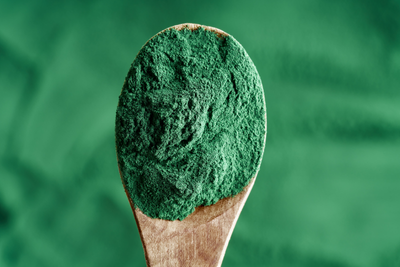

How Spirulina Supports Your Diet
Spirulina isn’t just great for your skin - it also offers a wide range of nutritional benefits::
- High-quality, plant-based protein: Spirulina contains essential amino acids and consists of about 60% protein. The superfood is an excellent protein source for vegan and vegetarian diets.
- Rich in antioxidants: Helps protect cells from oxidative stress and supports cellular health.
- Supports the immune system: Thanks to nutrients like beta-carotene, vitamins C and E, zinc and iron.
- Boosts energy and performance: Its high iron content aids oxygen transport in the blood.
- Anti-inflammatory properties: Promotes gut health and supports healthy cell function.
- Packed with vitamins, minerals and omega fatty acids.




Beauty editor
SIMILAR POSTS
You Might Also Like


